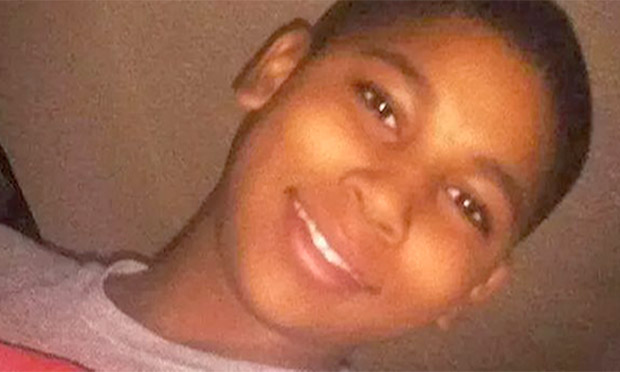I want a horoscope that tells me when they’ll stop killing us, when justice will stop being a joke the powerful pretend to tell, when I’ll stop thinking my partner might have been killed by police just because he’s 20 minutes late.
Every night I get my horoscope sent to my mailbox. I don’t read it anymore. It doesn’t warn me about yet another grand jury verdict, another killing, another police officer free to murder black people in their sleep/home/car/hallway/doorway. It doesn’t tell me if my partner will come back home to me tomorrow or if my little brother will get pulled over for driving while black on his way home. I wonder what a black justice horoscope would tell me. I need a black lives matter cosmos instead.
Yesterday Tamir Rice’s killer, Timothy Loehmann, went free. A child playing with a toy in the park was killed by someone who claims to enforce the laws of the land, and no one will be punished. He did nothing wrong, the authorities say. A man who shot a child and left him to bleed to death alone in the snow did nothing wrong. There will be no justice in this system. Not for him. Not for Aiyana, or Michael, or Rekia, or Eric, or Tarika, or Amadou.
A few years ago, during hurricane Sandy, a white man used a gun to threaten a black mother trying to escape rising flood waters with her two babies in her arms. He told her he would kill her if she didn’t get off his porch. She held them until she couldn’t anymore, the waters sweeping them away. Her babies, ages 4 and 2, drowned. No one else would help her search for them. The man who let two children die in the middle of a storm insisted he had done no wrong. No charges, no crimes. An article says she “tries to keep upbeat.”
If one had hours, they could listen to me tell all the stories that run, like an unrelenting stream, in the back of my mind. I keep vigil for them. The 8-year-old black boy shot in the face by a white man on his birthday. The black men killed by a white neighbor as one proudly showed off his new property. Another white neighbor who aimed at and shot a 13-year-old boy as he took out the trash in front of his house. A teenager killed by an irate off-duty cop carrying an illegal gun as she walked by with friends. New York police officers raping a black immigrant with a plunger in a police precinct bathroom.
I could tell you all the horror that I could never have predicted seeing in my lifetime, all the stories I’ve collected and hold so that I don’t forget them. I’m not sure why—what does it comfort me to know these things? How does it make it any easier to mourn strangers so that their deaths weren’t in vain?
I try to imagine what my ancestors did, if they just lived day to day as slaves, if they rebelled, if they prayed, how they survived. My people hail from South Carolina and Florida at least five generations back, and so I know that I am the descendant of many enslaved people. And I wonder how they got through the terror of it all. I wonder if my genes carry secrets that my fortunes won’t tell.
Last spring, I went to a sugar plantation in Puerto Rico. My tour guide described children losing limbs in machines that ground sugar that would sweeten colonial food. He said that in order for slaves to complain about their treatment, they had to escape the plantation. And if somehow they managed to survive that, they would still lose their cases before colonial courts for lack of proof. You can’t win in a system that wants you to lose.
I no longer read my horoscope because my past, present, and future are tied up in the names I carry with me everywhere, the faces I recount as I fall asleep at night or make a sandwich in the middle of the day—Tamir, Sean, Renisha, Yvette, Miriam, Kimani, Jonathan, Patrick, Sandra, Oscar. A photo of Trayvon hangs on my refrigerator. I feel guilty that I did not save them even though I know it is impossible. I wonder why superheroes aren’t real when we so clearly need them.
I want a horoscope that tells me when they’ll stop killing us, when justice will stop being a joke the powerful pretend to tell, when I’ll stop thinking my partner might have been killed by police just because he’s 20 minutes late. I want an astrologer to tell me when my people will be free.
Last night, I lay in the arms of the man I share my life with. He’s handsome, tall, and has dark brown skin exactly like mine. I told him I loved him. I told him I didn’t know what I would do if I lost him. And then I cried. I mourn for him even when he’s next to me. I prepare myself for sudden loss in hopes that if it ever occurs, I will not lose my mind.
I don’t have any use for fortune tellers. They never tell me what I need to hear, no predictions about when this country will ever do right by people they stole, displaced, enslaved, violated, and left ravaged. It won’t tell me how I’ll get through my work tomorrow with Tamir on my mind. If I’m lucky, I’ll get a few hours of sleep tonight. And tomorrow I’ll push on, not knowing what will come.
Khadijah Costley White is an assistant professor in the Department of Journalism and Media Studies at Rutgers University in New Brunswick. Find her on Twitter here.
Related Links:

